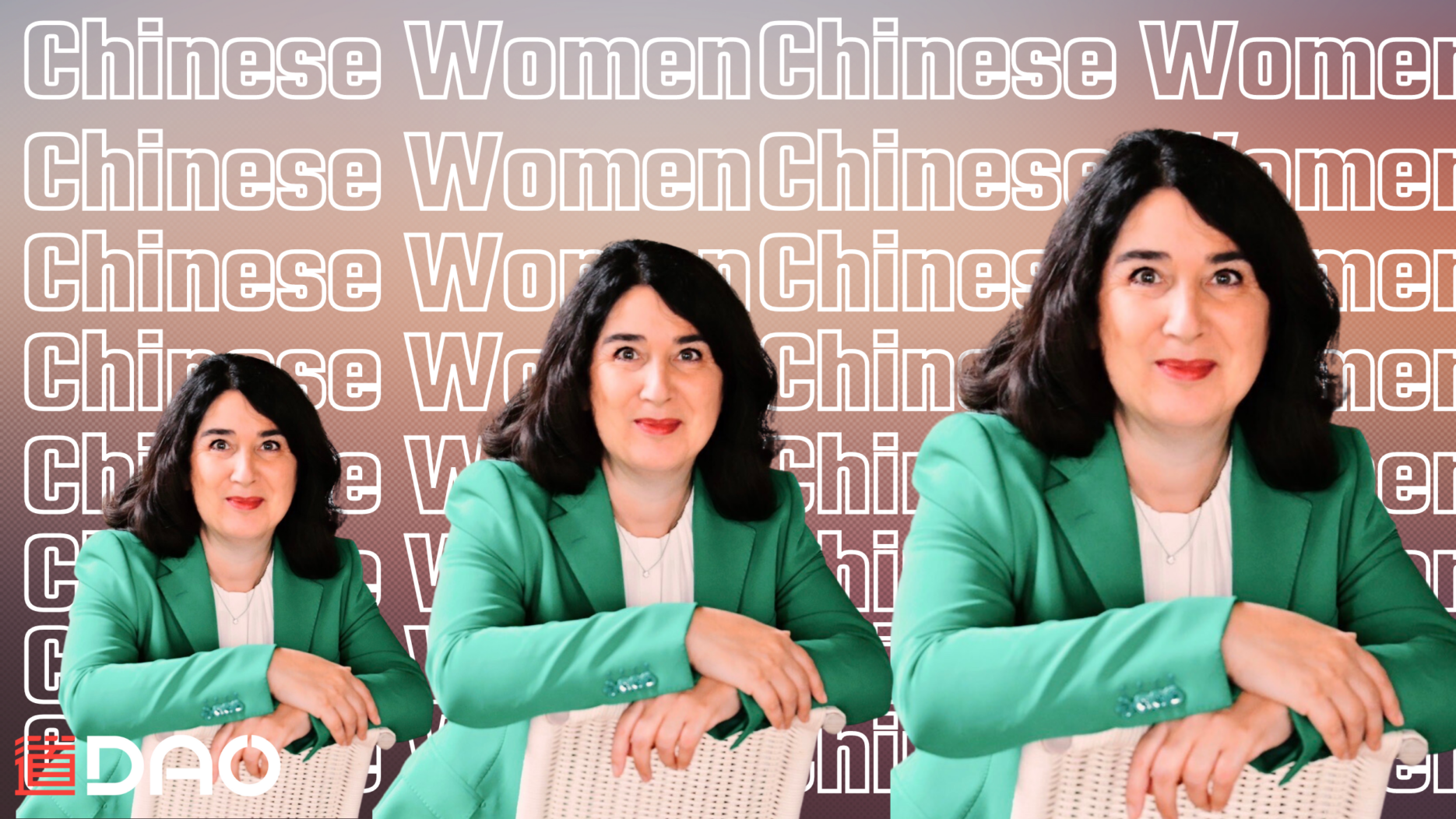In today’s rapidly evolving professional landscape in China, female professionals in senior positions display a distinct set of characteristics and attitudes that shape their careers and influence the developing role of women in the country.
To paint a clearer picture of this demographic and to understand how the rise of Chinese women challenges the preconceived notions in society, Dao Insights spoke to Dr. Bettina Al-Sadik-Lowinski, a leading global expert on female leadership, and author of How Chinese Women Rise.

As a management researcher, ICF Master Certified Coach, and founder of the Global Women Career Lab initiative, Dr. Bettina Al-Sadik-Lowinski is a leading global expert on female leadership. In her previous publications, including How Chinese Women Rise, she has explored how female managers from around the world can rise to the highest positions.
Originally from Germany, she has lived and worked in Japan, France, and China. In 2014, Al-Sadik-Lowinski founded the Global Women Career Lab, an international training and research initiative that delivers coaching and workshops designed to help more women move into senior management roles and facilitate better collaboration between men and women in the workplace.
Why was the attention of your research drawn to Chinese women?
When I first came to Shanghai I started working as a team coach and executive coach and trained new coaches. During my work with many professional Chinese women, I felt a difference to my home country Germany. Firstly, there were more women in top senior positions in China. Secondly, their attitude towards their career life seemed much more determined. So, I got really curious and decided to choose Chinese women and their careers as my Ph.D. topic.
Chinese women have a high learning ability, and are very flexible – regarding the job content but also regarding work locations.
Why do you think it is important to understand the rise of Chinese women in the professional field?
I think they can act as a role model for other women in China but also for women abroad in countries where we see fewer women in higher management functions. When I started to review all the literature, I found that most foreign researchers had little insight into the real target group. Most of the research on Chinese women in management had been done with students.
So my goal was to really analyse from a scientific perspective the career path and pattern as well as the determinants for careers of a selected sample of Chinese women in high functions. Women from all over the world can use their insights to reflect on their own career strategies and to think outside the box.
What are some of the “secrets” that Chinese women can use to make it to the top based on your research?
In a comparable, good environment for women’s careers in China, these female executives are characterised by above-average intercultural skills and global mindsets. Their career orientation is high. Through targeted career planning which utilises their skills and personality traits which are in particularly high demand in global corporations, these executives are catapulting to the top.
The interviewed women knew what they wanted. And their vision of their own career did not differ from those of successful men. They have a high learning ability, and are very flexible – regarding the job content but also regarding work locations. Most of them had high language skills and spoke three or more languages. Some had more than three university degrees. One interviewee said, “I looked at my skill set like a pie and identified the missing pieces.” Many of them moved quite often or commuted to see their families.
These women surely put work first, but they are also fantastic mothers who benefit from intrafamily support and a very supportive partner. So, choosing the right spouse was one of their secrets. What is very important is that these women are grasping chances. One woman said, “I went where nobody else wanted to go to become CEO.” They move out of their own comfort zone to grow and finally step up in their careers.
An essential part of their career recipe is that they understood their own strategic advantage of being Chinese in a multinational company. I also interviewed women in state-owned companies and they show the same characteristics. But for them, the capacity of networking and build relationships was essential for their careers. These are only some of the “secrets”, more can be found in my books.
Those women put work first, but they are also fantastic mothers who benefit from intrafamily support and a very supportive partner.
Where are most of those successful Chinese women based in the country?
Most of the women are where the big companies are, so of course there is a concentration in Shanghai and other business metropoles. My career path analysis showed that some women from the countryside strategically planned to get hukou (户口 hù kǒu Chinese household registration) in the bigger cities because they knew that their chances were there.
“Going where the odds are waiting” was one of the typical answers to the question of their career strategy and could serve as advice for other women worldwide to test their own flexibility and willingness to take risks.
Some women tried to study abroad and then came back with a multinational degree. They used their strategic advantage of being Chinese combined with international expertise.
What do you think are the key factors that have resulted in the rise of Chinese women in today’s society?
Two main aspects of the situation faced by women in China can be found in current literature. The country is culturally very rich and multi-layered and the socio-cultural framework for women and their careers fluctuates between very opposing influences. For example, the women of the Mosuo (摩梭族 mó suō zú) ethnic group, one of the world’s rare quasi-matriarchal cultures, are just as much a part of the cultural influence as Confucian traditions. The Confucian traditions, which make up a large part of China’s cultural background, are reported far more frequently in the scientific literature in connection with the role of women.
This is in contrast to a policy aimed at promoting equality in many areas. Women in the research described how old traditional values and gender equality co-exist in China. They feel that the level of equality is high. On a scale from 0 to 10, Chinese women rated equality in China between 8 to 10 in their environments.
How would you describe the characteristics/personas of today’s female professionals in senior positions in China?
Those women are determined, confident and team-oriented. They want to be the best but also support the growth of their teams. For these women, this is not contradictory. They also have a global mindset. What do I mean by this? They not only possess language skills but they are truly interested in foreign cultures and observe and learn from others. They gained broad international business expertise. And, they are able to move between cultures. They can lead in a pure Chinese context as well as in mixed nationality teams.
Determined, confident, and team-oriented are some of the most important characteristics of Chinese women in senior positions.
What kind of life attitudes do they have, and how do those attitudes impact their career?
The Chinese women in my “Global Women Career Lab”, which is the name of my ongoing research pool, really love their work and want to shape their companies, take decisions and be responsible. One woman said, “I wanted to be my own boss.” In Western countries you hear this from men but not so often from women. Having children and pursuing a high-end career at the same time were not mutually exclusive.
For many women in some Western countries or even in Asia, for example in Japan, women will stop their careers when they become mothers. The Chinese women enjoyed learning and liked their jobs. Life and work are interwoven for many. Career surely has a priority, but a good family life is also important even if they invest most of their daily time into the job.
What does the occurrence (the rise of Chinese women) say about the evolving role of women in China?
Contrary to what most people in the West might expect, China has a higher proportion of women in senior executive roles than other countries in the world, outstripping countries such as the USA, Japan, or Germany.
Some authors see more equal opportunities in China than in Western nations and describe a continuous decrease in inequality since the establishment of the current Communist government in the mid-1980s. Opposing positions point to the underrepresentation of women in senior government roles and conclude, inter alia, that women in China still do not have as much power as men.
From my research with a very select group of women in top management, I can see that Chinese women who want to pursue a top management career in some areas even have advantages over men.
About the research
The result is a unique research project, the “Global Women Career Lab”, which analyses the mechanisms, attitudes and carefully planned career paths that enabled these women to rise to senior positions at multinational corporations in China.
What makes Chinese female senior managers so successful? To find out, Dr. Bettina Al-Sadik-Lowinski interviewed 35 Chinese women in senior-level functions who she came into contact with through her work as an executive coach in China for her Ph.D. research with the University of Burgundy in France. The women who participated come from 25 international companies and more than 12 different business sectors.
Career paths involve several cities in China, including Wuhan, Chengdu, Guangzhou, Nanchang, Beijing and Shanghai. Many of the women interviewed worked or studied overseas. Al-Sadik-Lowinski later also interviewed women from state-owned companies. In her book How Chinese Women Rise, women share their career experiences and shed light on which capabilities and strengths helped them to move into higher management roles.









